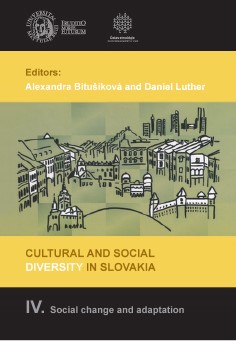THE HOLOCAUST IN SLOVAKIA: PERSPECTIVE OF OBSERVERS. COPING WITH THE PAST?
THE HOLOCAUST IN SLOVAKIA: PERSPECTIVE OF OBSERVERS. COPING WITH THE PAST?
Author(s): Monika Vrzgulová
Subject(s): Military history, Cultural Anthropology / Ethnology, Studies in violence and power, WW II and following years (1940 - 1949), History of the Holocaust, History of Antisemitism, Ethnic Minorities Studies, Peace and Conflict Studies
Published by: SAV - Slovenská akadémia vied - Ústav etnológie a sociálnej antropológie Slovenskej akadémie vied
Keywords: Holocaust; Slovakia; World War II; Ethnological research;
Summary/Abstract: The social and political changes in Slovakia after 1989 opened many new challenges, tasks, and issues. One of the consequences of these changes was the fact that the public and expert discourse started to raise topics on the modern history of Slovakia - before taboo, overlooked, or ideologically interpreted by the Communist regime. A request and interest suddenly emerged to explore our own history without the dictate of ideology, independently and openly. The history topics which were previously taboo referred to the period of the wartime Slovak state (1939-1945) and its totalitarian regime, and the forms of the Holocaust in Slovakia. Historians and social scientists started to explore these topics from the perspective of their science disciplines. In order to contribute to a critical re-assessment of the ideologically burdened images of the past and to the overcoming of historic stereotypes surviving in our societies, the oral history method is primarily used in my ethnological research. It represents an appropriate tool for the capturing of subjective testimonies of experienced events at a certain historic period. Thanks to this method, it is possible to obtain an interpretation of historic events from the perspective of individuals who are part of the society. My research is based on the assumption that the affiliation of a witness to a certain social group or groups determines his/her testimony, and the memory processes depend not only on external stimuli, but also on the particular social context (Halbwachs 1980; Assman 1992; Ferencová - Nosková 2009: 21-31).
Book: Cultural and social diversity in Slovakia iv. social change and adaptation
- Page Range: 73-82
- Page Count: 10
- Publication Year: 2013
- Language: English
- Content File-PDF

